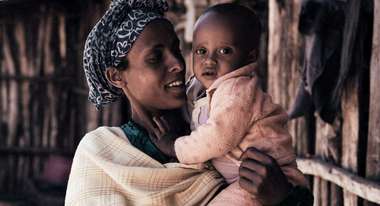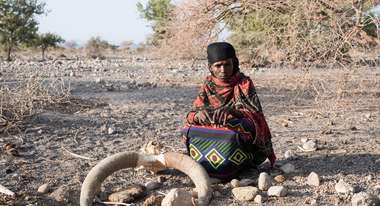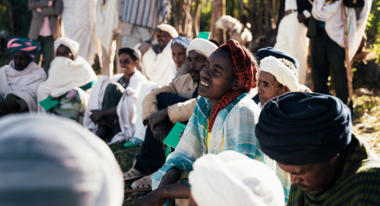Better beehives improve honey harvest
Ejane Aba Fita is one farmer benefiting from greater honey harvests due to modern beehives in Ethiopia's Jimma zone.

59-year-old Ejane Aba Fita is a highly respected farmer who lives in the Mana district of the Jimma zone in Ethiopia. He is married and the father of four children he adores. Although he mainly engages in honey production, he also has coffee trees and vegetables in his backyard. Ejane has long been a honey producer and knew the limit to the amount of honey his traditional beehives could produce. So, when he was asked to be part of an informal group of honey producers who would get improved beehives, he didn’t hesitate for a second.
Four-fold increase in honey harvest
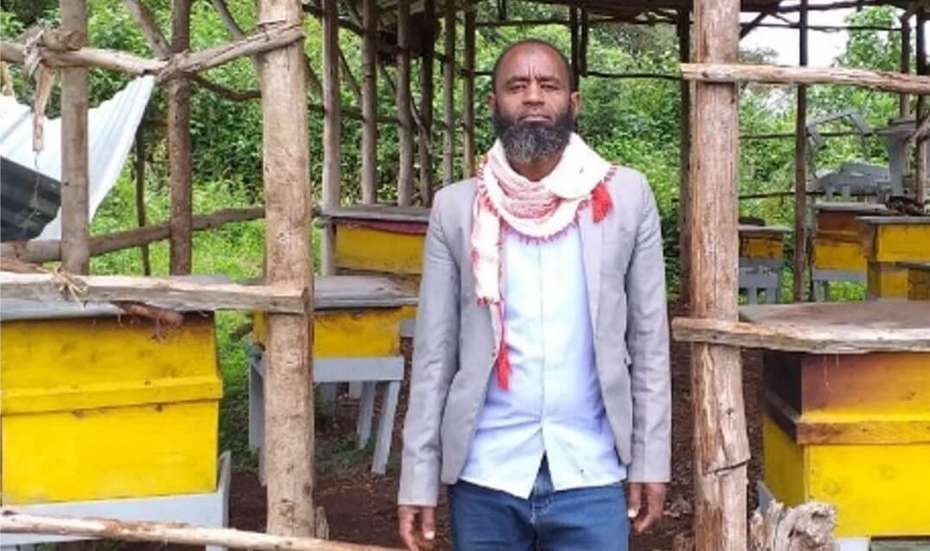
Ejane became one of the thirty project participants and chairman of one of the seven beekeeping groups that were supported by Welthungerhilfe in two projects funded by the German Federal Ministry for Economic Cooperation and Development (BMZ) and Coffee Circle, and the German Agency for International Cooperation (GIZ) respectively. This informal honey-producing group now has grown into a beehive and honey manufacturing cooperative, which holds a license from the government body responsbile for regulating honey production.
“I used to get only three-to-five kilograms (kg) of honey harvest from the traditional beehives. The difference is unbelievable, because with the modern beehives that I received, I get 12-to-15 kg of honey,” explains Ejane.
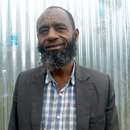
The difference is unbelievable, because with the modern beehives that I received, I get 12-to-15 kg of honey.
Ejane Aba Fita Ejane Aba Fita is a participant in Welthungerhilfe project to support honey farmersThis increase in in honey production has allowed to the beekeeping groups to begin saving some money from their practices.
Scaling up cooperation
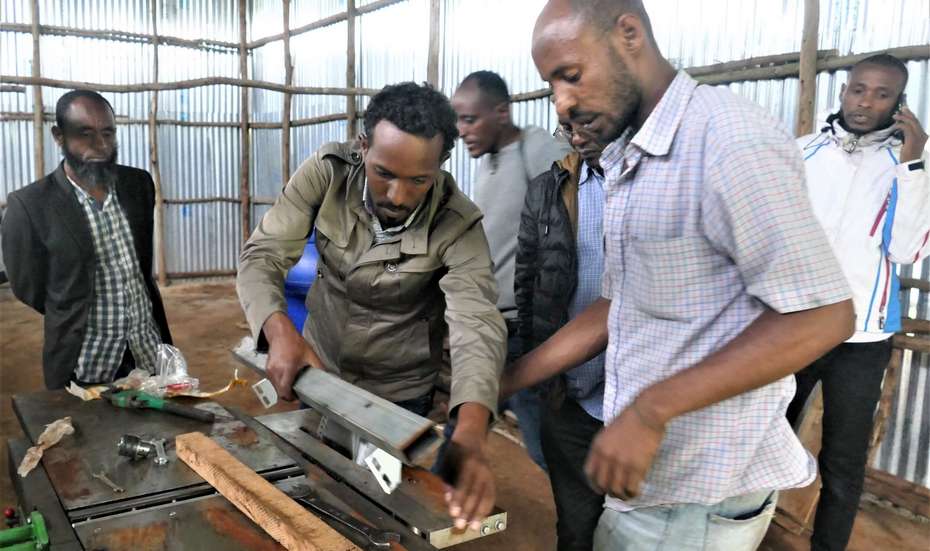
In addition to the low yield, traditional beehives are easily breakable and difficult to inspect. They also have their own negative ecological impact. That is that there is tje potential to increase the risk of forest fires during harvest season because the farmers use smoke to avoid being stung by the bees.
Considering such impacts, the project financed by GIZ in partnership with Welthungerhilfe and implemented by the local partner HUNDE, decided to give the beehives producing machine for the group to scale up the result. The construction of the machine house is already finalized. However, the installation of the machine inside is currently in progress. After the machine installation is finished, the cooperative is expected to sell the beehives at a reasonable price to the farmers in the surrounding areas and even further afield.
Ejane can’t wait to see the machine start working. “Our dreams go beyond the sky of Mana. We are determined to increase the number of our members and honey production. That way, we can become members of a union and get market linkage to export our high-quality honey.”
Access to water another focus
On top of the benefits to honey production, the project funded by BMZ and Coffee Circle in partnership with Welthungerhilfe is changing lives in the Mana district in another way. More than 6,500 community members now have access to safe drinking water via water kiosks constructed in the different districts of Mana area. Munaja Tema (pictured below) from the Mena Chekorsa district of Jimma, Ethiopia is one beneficiary. She no longer needs to travel 40 minutes twice a day to fetch water.
For Munaja and the entire neighborhood, it was out of this world to see water kiosks right at their doorsteps. “I didn’t even know such water exists,” she explains. “It is so clean. My first reaction was disbelief. We no longer travel the daunting distance to fetch water. Our kids have got relief from the aches they used to get now and then. We protect this water as our own eyes.”

About the projects
The two projects mentioned in this article were designed to diversify the income and improve food security for coffee farmers and residents of the Mana, Seka Chekorsa and Gomma districts of the Jimma zone in Ethiopia.
About the author
Fasika Asrat works in Wetlhunghilfe’s Ethiopian country office as a communication and advocacy expert. She recently travelled to the Jimma zone of Ethiopia to learn first-hand the stories of the beneficiaries of Welthungerhilfe projects.





